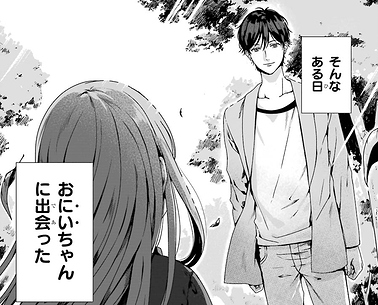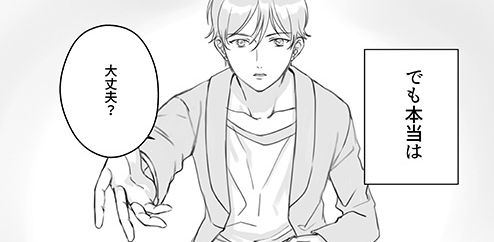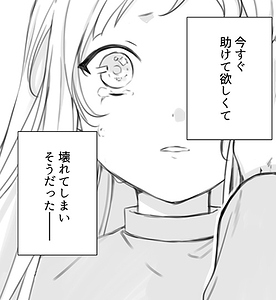Page 93
今すぐだれに助けてもらわないと 壊れちゃいそうだからー
I had a bit of a struggle breaking down this sentence, particularly because:
- It was my first encounter with the negative form of ーてもらう, as in 助けてもらわない.
Which I broke it like:
- 今すぐ: right now
- 誰かに: someone (for)
- 助けてもらわない: to help (not have someone do)
- と: if
→ If I don’t have someone help me right now,
- Also with ーてしまう+そう, as in 壊れちゃいそう.
- 壊れちゃいそう: to be broken (completion) (it seems)
- だからー: consequently
→ it looks like I’ll finally break down.
So stitched together I got:
→ If I don’t have someone help me right now, it looks like I’ll finally break down.
Which kinda makes sense given the context, but I also get the feeling it does not, together with the low confidence on the translation/break down because I got here only after a lot of iterations over multiple resources; so I wonder if you guys could shine the light of knowledge here.
Page 95
おにいちゃんにお兄ちゃんを重ねて…
I also had trouble with the 重ねる instances in this chapter, going back and forth between the two meanings to pile up, and to repeat many times over.
By reading your so helpful discussions on this thread, I came to terms with the to pile up meaning, but in this sentence it still doesn’t make sense for me, since the direct object is お兄ちゃん (the real brother) and the “thing which’s being piled over on”, marked by に, is おにいちゃん (the rental brother).
So my translation became: To put my real brother on top of you (rental brother).
Shouldn’t it be the inverse?  or did I make a mess out of my grammar?
or did I make a mess out of my grammar?
Yay, I’m finally (barely) on schedule again, that’s exciting! 
This was a very intense chapter, with us getting to know a lot more about the trio, and how the relationship between 叶実 and おにいちゃん (I keep forgetting his real name) came to be.
Overall I found it was a pleasure to read, with few road blocks in terms of vocabulary and grammar – or I just understood everything wrong  . However there were plenty of times where I did not know exactly who was talking, and the mix of 叶実, お兄ちゃん, おにいちゃん and おにいさん being used did not help at all! I hope I’ll get better at distinguishing these things as I get more familiar with reading manga in Japanese, and I’m excited to see how it will differ from reading a book book like 10分 next month.
. However there were plenty of times where I did not know exactly who was talking, and the mix of 叶実, お兄ちゃん, おにいちゃん and おにいさん being used did not help at all! I hope I’ll get better at distinguishing these things as I get more familiar with reading manga in Japanese, and I’m excited to see how it will differ from reading a book book like 10分 next month.
All in all, great week, and thanks for your help you wonderful internet friends! 
![]()






















